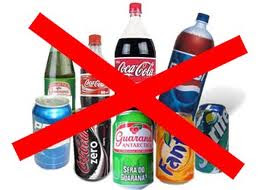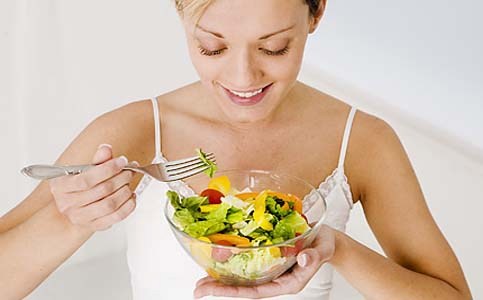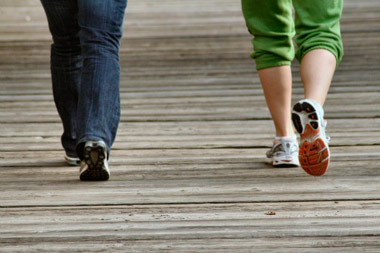After you have a wonderful meal, do you often feel your pants become tight with your stomach feeling enlarged? Do you also experience gas, cramps, and belching? Well, you are feeling bloated. While it is not uncommon to feel bloated after a meal, you may have to worry a bit if you experience symptoms of bloating after every meal. This may indicate an underlying medication condition.
Why You Experience Bloating After Eating
As mentioned, you usually do not need to worry about feeling bloated after a meal, but if it happens quite often, you may need to dig deeper into the details to identify the underlying cause. Here are some of the most common reasons:
1. Food Intolerance
How people react to certain food is quite fascinating. Some people can eat anything without noticing any problem, while others are more sensitive to certain food and end up feeling bloated. If you experience this on a regular basis, this could be because you are intolerant to certain types of food. Yeast, gluten, milk, and fructose can all cause stomach bloating in some people.
2. Overeating
One obvious reason of dealing with bloating after eating is to eat too much. Overeating will most often result in flatulence and bloating. This happens because your digestive system fails to break down the food when there is too much of it. The best solution is to eat smaller meals more often throughout the day.
3. Lack of Digestive Enzymes
You may experience stomach bloating if what you eat does not include enough digestive enzymes. These enzymes break down food into small particles. You are more likely to have inadequate levels of digestive enzymes if you rely too much on processed food. Even if you eat vegetables and fruits, you may still not have a healthy balance of digestive enzymes because you overcook your vegetables. Eating more raw food is the key here – you may also consider taking nutritional enzyme supplements to reduce bloating.
4. Eating Fatty Food
If your diet includes too much of fatty food, you are surely going to deal with bloating after eating. Your body takes a lot longer to process high-fat meals. Fat moves slowly through your digestive tract and increases the chances of you feeling bloated. You should consider eating leaner food, such as grains and produce.
5. Eat Too Fast
If you feel bloated after eating, this could be due to your habit of eating too fast. It is easy to fix the issue though – just eat more slowly. Your brain receives satiety signals about 20 minutes after you eat your food, which means you will be able to eat less if you eat slowly.
6. Irritable Bowel Syndrome (IBS)
Unflattering bloating may well be a sign that you are suffering from a condition called irritable bowel syndrome (IBS). If that is the case, you may have other signs as well, including gas, abdominal pain, constipation, and diarrhea.
7. Coeliac Disease
You have coeliac disease when your intestine fails to absorb gluten found in barley, wheat, and rye. You have to avoid food with these ingredients and may also avoid eating oats because they are usually processed in factories where they also process wheat. If you have coeliac disease, you may also experience abdominal pain, diarrhea, and fatigue. While there is no cure for this disease, knowledge about it will help you make better food choices.
Ways to Avoid Bloating After Eating
Once you know the reasons behind bloating,you can take steps to deal with it. Here is what you can do to keep bloating at bay.
1.  Avoid Carbonated Drinks
Avoid Carbonated Drinks
You should avoid carbonated drinks or at least limit their intake. Drink more of these drinks and carbon dioxide will build up in your system. This will lead to bloating. The best thing is to stick with plain water or add a slice of lemon to make it taste better.
2.  Eat Slowly
Eat Slowly
Do not eat too fast because this makes you swallow air that leads to bloating after eating. Take more time to eat – this keeps you from swallowing air and also helps reduce your overall food intake.
3.  Take a Walk
Take a Walk
Go for a walk after you eat your meal. Even a short walk after a meal can work wonders in reducing the gas buildup that usually leads to bloating. Besides, walking will also benefit your overall health.
4. Mind the Food You Eat
What's more, several difficult-to-digest, bloat-inducing foods can make things extremely difficult when you are already having a hard time dealing with bloating after eating.

- For starters, avoid beans and lentils if possible because they have indigestible sugars called oligosaccharides, which may cause bloating.
- Fruits and vegetables such as cabbage, Brussels sprouts, apricots, carrots, cauliflower, prunes, and apricots are also gas-inducing food.
- Sweeteners, such as Sorbitol, dairy products, and whole grains can also cause bloating and gas problems. It is true that whole grains have several benefits mainly because of their high fiber content, but too much of fiber can also lead to bloating, gas, and constipation. If you have whole grains in your diet, be sure to drink plenty of water as well.
5. Try a Supplement
You can find gas-busting or anti-gas supplements such as a-galactosidase tablets to avoid dealing with gas after eating certain foods. These pills not just help relieve bloating, but they also prove effective against flatulence and belching. You need to take most of these supplements before every meal, but talk to your doctor about how often you should take it.
When to Worry
You can deal with bloating after eating by making subtle changes to your lifestyle and eating habits. It is important to talk to your doctor if you fail to identify what causes bloating in your case or you experience it on a regular basis. Sometimes, you experience bloating because of physical obstructions, such as scarring of the stomach opening. You usually need to undergo surgery if your doctor has diagnosed a physical obstruction in your stomach.
Similarly, impaired muscle function in your digestive tract may also be the reason why you always feel bloated. In rare cases, persistent bloating is due to a potentially serious condition, such as a malignancy or enlargement of one of the abdominal organs.
